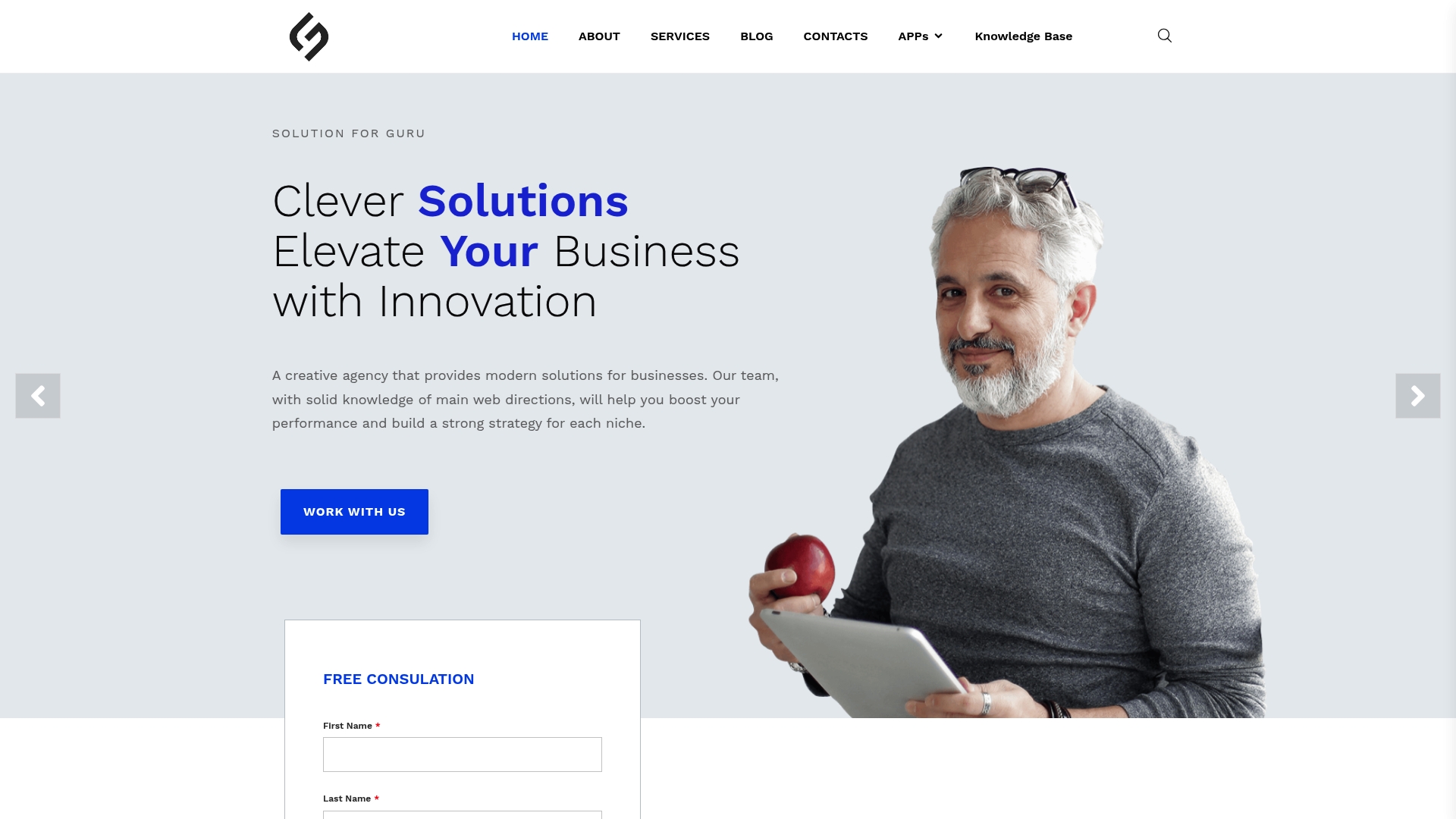Understanding the Future of AI in Business Today

Artificial intelligence is no longer a far-off dream. Half of organizations already use AI in at least one business function. You might think these machines are just automating simple tasks, but real change is happening on an entirely different level. The real impact is showing up in smarter decisions and new business possibilities that even experts did not see coming.
Table of Contents
- What Is AI And How Is It Transforming Business?
- Why AI Matters For Small And Medium-Sized Enterprises
- How AI Works: Key Technologies And Concepts Explained
- Real-World Applications Of AI In Various Industries
- The Challenges And Opportunities Of AI Adoption In Business
Quick Summary
| Takeaway | Explanation |
|---|---|
| AI enhances business efficiency | AI automates repetitive tasks and optimizes workflows, significantly improving operational performance. |
| AI drives competitive advantage for SMEs | Small and medium-sized enterprises can leverage AI to boost productivity and compete with larger firms effectively. |
| Strategic AI applications are diverse | AI offers varied applications across industries, from healthcare to finance, enabling tailored solutions for specific challenges. |
| Embrace advanced technologies strategically | Organizations need to integrate AI technologies thoughtfully to address unique challenges and maximize innovation potential. |
| Overcome implementation challenges proactively | Companies must identify and address skill gaps, data quality, and ethical concerns to leverage AI effectively. |
What is AI and How is it Transforming Business?
Artificial Intelligence (AI) represents a groundbreaking technological paradigm where machines simulate human intelligence, enabling them to learn, reason, and make decisions autonomously. According to McKinsey Global Survey, 50% of organizations have already integrated AI into at least one business function, signaling a transformative shift across industries.
Understanding AI’s Core Mechanisms
At its fundamental level, AI operates through complex algorithms and machine learning models that process vast amounts of data, identifying patterns and generating insights far beyond human computational capabilities. These systems utilize several key technologies:
- Neural Networks: Computer systems modeled after human brain structures
- Machine Learning: Algorithms that improve performance through experience
- Deep Learning: Advanced neural network techniques enabling sophisticated pattern recognition
Businesses leverage these technologies to solve intricate problems, predict outcomes, and automate complex processes with remarkable precision.
AI’s Revolutionary Business Applications
The future of AI in business extends far beyond simple automation. Modern AI solutions are reshaping critical organizational functions through intelligent, adaptive technologies. Companies now deploy AI for:
- Strategic decision making using predictive analytics
- Enhanced customer experience through personalized interactions
- Operational efficiency by automating repetitive tasks
- Risk management through advanced predictive modeling
Whether you’re seeking to optimize workflows or develop cutting-edge products, AI provides unprecedented capabilities. Explore our guide on AI tools for business efficiency to understand how emerging technologies can transform your organizational strategies.
Why AI Matters for Small and Medium-Sized Enterprises
Small and medium-sized enterprises (SMEs) are discovering significant competitive advantages through artificial intelligence, transforming traditional business limitations into opportunities for growth and innovation. According to University of St Andrews research, AI adoption can potentially increase SME productivity by an extraordinary 27% to 133%, presenting a game-changing technological frontier.

Economic Potential and Competitive Edge
AI technologies offer SMEs unprecedented capabilities to compete with larger organizations by leveling the technological playing field. These intelligent systems enable smaller businesses to:
- Optimize operational efficiency
- Reduce manual labor costs
- Generate sophisticated data insights
- Personalize customer experiences
- Make faster, more accurate business decisions
By implementing AI strategically, SMEs can transform limited resources into powerful competitive advantages, creating scalable solutions that were previously accessible only to large corporations.
Practical AI Applications for SMEs
Modern AI tools are becoming increasingly accessible and user-friendly, allowing SMEs to integrate advanced technologies without massive infrastructure investment. Critical applications include:
- Automated customer service through intelligent chatbots
- Predictive inventory management
- Intelligent marketing automation
- Advanced financial forecasting
- Cybersecurity threat detection
Discover cutting-edge AI business efficiency strategies that can transform your enterprise’s technological capabilities and drive sustainable growth. By understanding and implementing AI thoughtfully, SMEs can unlock remarkable potential for innovation and competitive differentiation.

How AI Works: Key Technologies and Concepts Explained
Artificial Intelligence represents a sophisticated technological ecosystem where computer systems simulate human-like intelligence through complex algorithmic processes. According to Stanford University, AI fundamentally involves understanding natural language, recognizing patterns, solving problems, and learning from experience.
Core Technological Foundations
At its essence, AI operates through interconnected technological frameworks that enable machines to process information, learn, and make intelligent decisions. The primary technological components include:
- Machine Learning: Algorithms that improve automatically through experience
- Neural Networks: Computer systems mimicking human brain structures
- Deep Learning: Advanced neural network techniques enabling complex pattern recognition
These technologies work collaboratively to transform raw data into meaningful insights, allowing computational systems to adapt and respond intelligently to diverse scenarios.
Here is a comparison of the core artificial intelligence technologies described in the article, helping clarify their unique roles and functions in modern business applications.
| AI Technology | Description | Main Business Use |
|---|---|---|
| Machine Learning | Algorithms that improve automatically through experience | Predictive analytics, automating workflows |
| Neural Networks | Computer systems mimicking human brain structures | Pattern recognition, natural language processing |
| Deep Learning | Advanced neural network techniques enabling complex pattern recognition | Sophisticated image, speech, and data analysis |
AI Learning and Decision Making Mechanisms
AI systems fundamentally learn through sophisticated data processing techniques. Unlike traditional programming, where explicit instructions govern every action, AI models develop capabilities by:
- Analyzing large datasets
- Identifying statistical patterns
- Creating predictive models
- Generating autonomous decisions based on probabilistic outcomes
Learn more about revolutionary AI technologies that are reshaping computational intelligence. By understanding these intricate mechanisms, businesses can leverage AI not just as a tool, but as a strategic asset for innovation and competitive advantage.
Real-World Applications of AI in Various Industries
AI technologies are rapidly transforming diverse industries, offering unprecedented capabilities for innovation, efficiency, and problem-solving. According to McKinsey Global Survey, companies worldwide are strategically implementing AI to revolutionize their operational processes and create competitive advantages.
Transformative AI Applications Across Sectors
Different industries are leveraging AI technologies to address unique challenges and unlock new opportunities. The most impactful applications include:
- Healthcare: Advanced diagnostic imaging and personalized treatment planning
- Finance: Fraud detection and algorithmic trading systems
- Manufacturing: Predictive maintenance and quality control
- Retail: Customer personalization and inventory management
- Agriculture: Crop monitoring and precision farming techniques
These applications demonstrate AI’s remarkable ability to process complex data and generate actionable insights across multifaceted business environments.
Industry-Specific AI Implementation Strategies
Successful AI integration requires tailored approaches that align technological capabilities with specific industry requirements. Critical implementation strategies involve:
- Identifying precise business challenges
- Selecting appropriate AI technologies
Businesses must recognize that AI is not a one-size-fits-all solution but a flexible technological framework adaptable to unique organizational needs. Explore advanced AI business efficiency tools to understand how cutting-edge technologies can transform your specific industry landscape. By strategically implementing AI, organizations can unlock unprecedented potential for innovation, efficiency, and competitive differentiation.
The Challenges and Opportunities of AI Adoption in Business
AI adoption represents a complex technological transformation that simultaneously presents significant opportunities and substantial challenges for businesses. According to the OECD’s research, organizations must navigate intricate technological, human capital, and strategic considerations when integrating advanced AI systems.
Key Challenges in AI Implementation
Businesses encounter multiple obstacles when attempting to implement AI technologies effectively. The most prominent challenges include:
- Skill Gaps: Shortage of specialized AI talent and technical expertise
- Data Quality: Inconsistent or incomplete organizational data
- High Implementation Costs: Significant financial investment requirements
- Cultural Resistance: Employee apprehension about technological change
- Ethical and Privacy Concerns: Complex regulatory compliance challenges
These challenges underscore the complexity of seamlessly integrating AI into existing business ecosystems, demanding strategic planning and comprehensive organizational transformation.
This table summarizes key challenges faced and strategic opportunities available when implementing AI in business environments as outlined in the article.
| Aspect | Examples from the Article |
|---|---|
| Key Challenges | Skill gaps, data quality issues, high costs, cultural resistance, ethical and privacy concerns |
| Strategic Opportunities | Enhanced operational efficiency, predictive insights, personalized experiences, automation of decisions, new revenue streams |
Strategic Opportunities for Business Growth
Despite implementation challenges, AI offers remarkable potential for organizational innovation and competitive advantage. Businesses can leverage AI technologies to:
- Enhance operational efficiency
- Generate sophisticated predictive insights
- Personalize customer experiences
- Automate complex decision making processes
- Develop new revenue streams
Explore advanced AI business efficiency strategies to understand how cutting-edge technologies can transform your organizational capabilities. Successful AI adoption requires a balanced approach that addresses challenges while strategically pursuing transformative opportunities.
Ready to Turn AI Opportunity into Real Business Transformation?
The article highlights a key challenge today’s businesses face: knowing that artificial intelligence is the future, but struggling with how to harness it for persistent growth, smarter decision-making, and smooth operations. Many leaders feel uncertain about where to begin with AI integration, anxious about high costs, technical roadblocks, or missing the chance to get ahead of competitors. If your goal is to streamline workflows, boost customer engagement, or scale your business using AI and digital tools, you are not alone.

Now is the moment to act. At Solution4Guru.com, we help companies like yours bridge the gap between understanding AI and leveraging it for real-world results. Our experts offer tailored consultations and full digital transformation services, including AI integration and automation, web development, and strategic business consulting. Do not let your competitors outpace you in this rapidly changing landscape. Book your free consultation today and discover how AI can power your next stage of growth.
Frequently Asked Questions
What is AI and how does it work in business?
AI, or Artificial Intelligence, refers to technologies that enable machines to simulate human intelligence, learning, reasoning, and decision-making autonomously. In business, it works through complex algorithms and machine learning to analyze data, recognize patterns, and inform strategic decisions.
How can small and medium-sized enterprises benefit from AI?
Small and medium-sized enterprises (SMEs) can benefit from AI by optimizing operational efficiency, reducing labor costs, and leveraging sophisticated data insights for faster decision-making. AI can level the playing field, allowing smaller businesses to compete effectively with larger corporations.
What are some common applications of AI in various industries?
AI applications vary by industry, including advanced diagnostic imaging in healthcare, fraud detection in finance, predictive maintenance in manufacturing, customer personalization in retail, and precision farming in agriculture. These technologies help businesses solve unique challenges and enhance efficiency.
What challenges do businesses face when adopting AI?
Businesses often encounter challenges like skill gaps in AI expertise, data quality issues, high implementation costs, resistance to cultural change, and ethical concerns regarding privacy. Addressing these challenges is essential for successful AI integration and maximizing its benefits.



